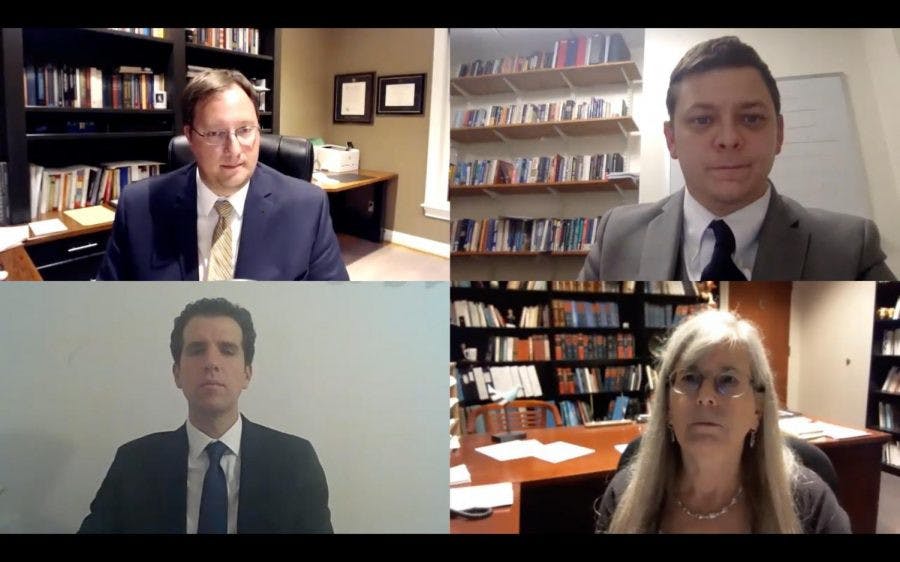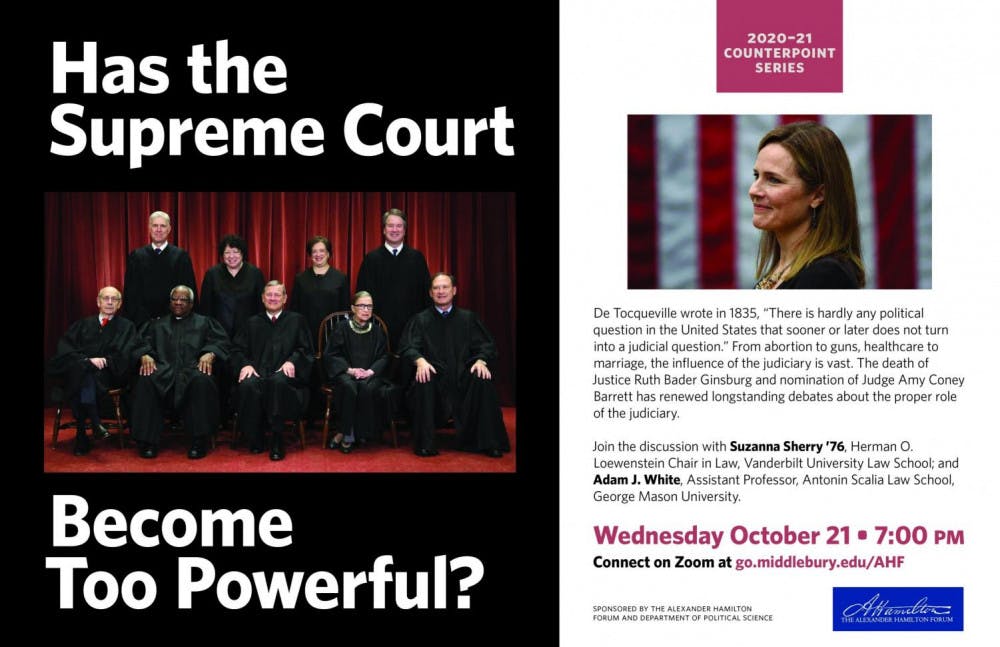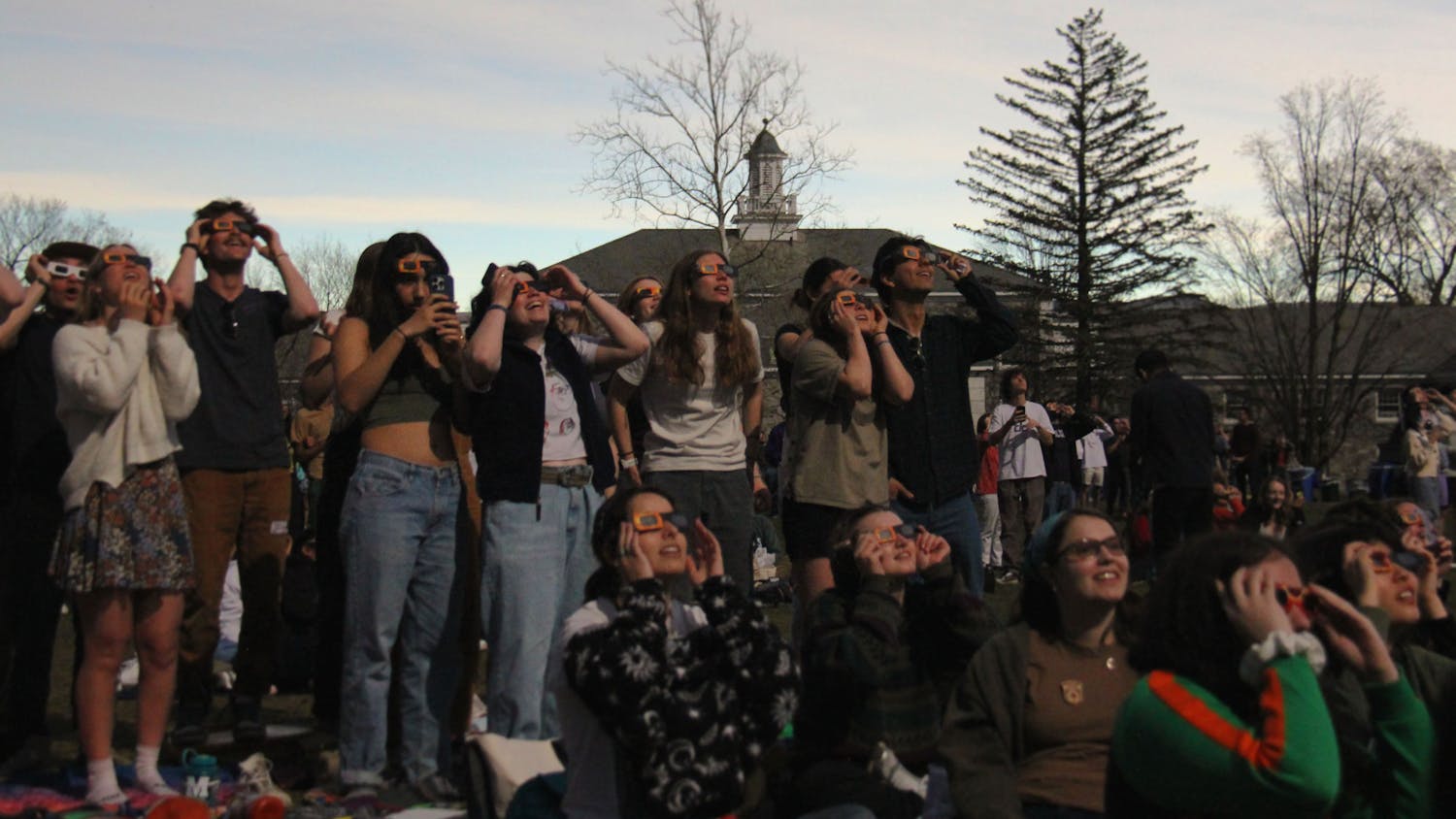Just days before the confirmation of Justice Amy Coney Barrett, the prominence of the nation’s highest court came into discussion at Middlebury. The Alexander Hamilton Forum hosted its second debate of the semester last Wednesday, titled “Has the Supreme Court Become Too Powerful?”
The debate featured two guest speakers, Adam J. White and Suzanna Sherry ’76, arguing for and against, respectively, the question proposed by the title of the debate. White is a fellow at the American Enterprise Institute, as well as an Assistant Professor at the Antonin Scalia Law School of George Mason University. Sherry serves as the Herman O. Loewenstein Chair in Law at Vanderbilt University Law School.
The event, hosted over Zoom, used a webinar format, meaning only the guest lecturers and moderators could be seen. Professor Gary Winslett, who hosted the debate with Professor Keegan Callanan, told The Campus that attendance peaked at 73 viewers.
White argued that the Supreme Court is, in fact, too powerful, and started by pointing to the “superstar celebrity” status of justices, as demonstrated by the recent Amy Coney Barrett media coverage. He cited the “gravitational pull” of the court, which blows its role out of proportion.

Traditionally the “least dangerous branch,” as he put it, the court’s job is to dictate higher law in accordance with textualist or originalist interpretations of the Constitution. White noted that he does not particularly differentiate between the two interpretations and sees them as linked.
“It’s not right versus left, but rather judicial restraint versus judicial activism,” he said.
Sherry pushed back against White’s characterization and called attention to the fact that a deferential Supreme Court makes more mistakes than an active one.
Citing in particular Korematsu v. United States, in which the Court upheld Japanese internment, Sherry argued that judicial restraint can have drastic consequences. She argued that the Supreme Court does not have that much power, which could be considered “analogous to but less than” the relative power of the other two branches of government.
One point on which the professors agreed was that the Supreme Court discourse tends to become more relevant during periods of political polarization and hyper-partisanship before an election.
The death of Ruth Bader Ginsburg last month ushered in an ugly discussion about the logistics of appointing a federal justice, which ended with the Senate swearing in Justice Amy Coney Barrett along party lines on Tuesday morning.
Tom Sacco ’20.5 attended the talk and was unsure which side had a stronger argument.
“After watching the talk, it seemed like they were debating two sides of the same coin. To me, it seems like the Supreme Court has a lot of power in some areas but is limited in other key ones, and they were choosing to focus on different aspects, as well as debating the semantics of textualism and originalism,” he said.
The Alexander Hamilton Forum’s next debate was announced on Wednesday and is titled “When Should We Trust the Experts?” It is scheduled for Nov. 10.
Hamilton Forum debate contends with the power of the Supreme Court

Adam J. White (top left) and Suzanna Sherry ’76 (bottom right) debated via a Zoom web conference last Thursday.
Comments



